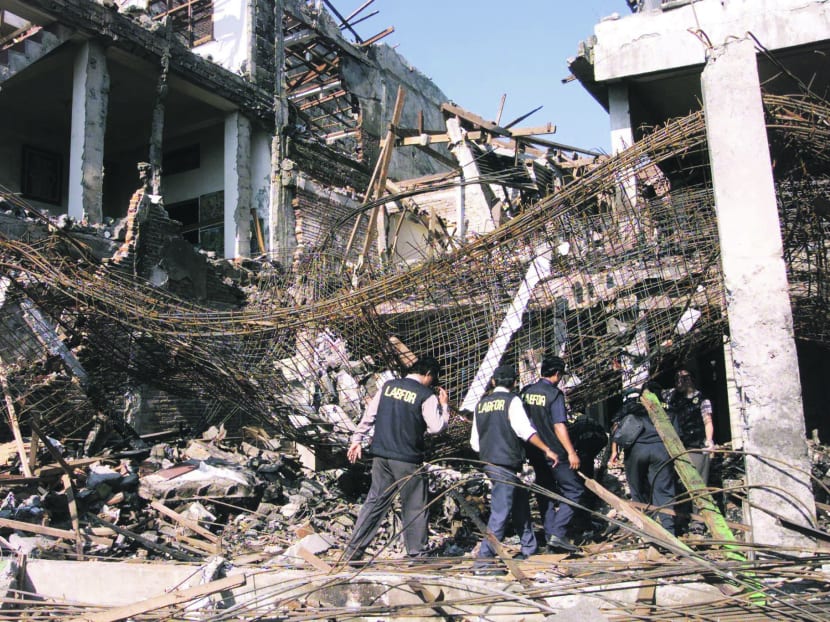South-east Asian militant group Jemaah Islamiyah regaining strength: Think-tank
JAKARTA — South-east Asian militant group Jemaah Islamiyah, blamed for major attacks including the 2002 Bali bombings, has regained strength in Indonesia and could spawn a new generation of extremists, a leading security think-tank warned Thursday (April 27).

Indonesian forensic police walk through a destroyed building at the site of a bomb blast in Kuta beach on the resort island of Bali in this October 13, 2002 file photo. Photo: Reuters
JAKARTA — South-east Asian militant group Jemaah Islamiyah, blamed for major attacks including the 2002 Bali bombings, has regained strength in Indonesia and could spawn a new generation of extremists, a leading security think-tank warned Thursday (April 27).
Jemaah Islamiyah (JI) does not pose an immediate threat and its leadership has for some years rejected violence to achieve its goal of forming an Islamic state, said the report from Jakarta group the Institute for Policy Analysis of Conflict (IPAC).
But it is also building a clandestine military wing in Indonesia, the world’s most populous Muslim-majority country, and there is a risk a more militant faction could emerge from the wider organisation as it steps up recruitment, it said.
The military part of the organisation is not intended to be used in terror attacks. It is preparation for a potential future confrontation, but those who receive training will likely “be impatient to test their skills”, said the think-tank.
“The current JI could give rise to a more militant splinter that could be more professional in its organisation, training and recruitment than anything Indonesian extremism has to offer today,” said the report from IPAC, headed by veteran security analyst Sidney Jones.
JI was founded by a handful of exiled Indonesian militants in Malaysia in the 1980s, and grew to include cells across South-east Asia.
The Al Qaeda-linked group was blamed for terror attacks, mainly in Indonesia, that struck Western targets including the 2002 bombing on the resort island of Bali that killed 202 people.
The attacks prompted Indonesian security forces to mount a sustained crackdown that was credited with almost wiping out JI.
However since 2010 JI has been regaining strength, and recent arrests of members suggest it should still be considered a danger, said IPAC.
JI’s leaders are strongly opposed to the Islamic State (IS) group, however.
IS has in recent years been a major problem for Indonesia, with hundreds of radicals flocking to fight with the jihadists. A deadly attack in Jakarta last year was claimed by the group. AFP






